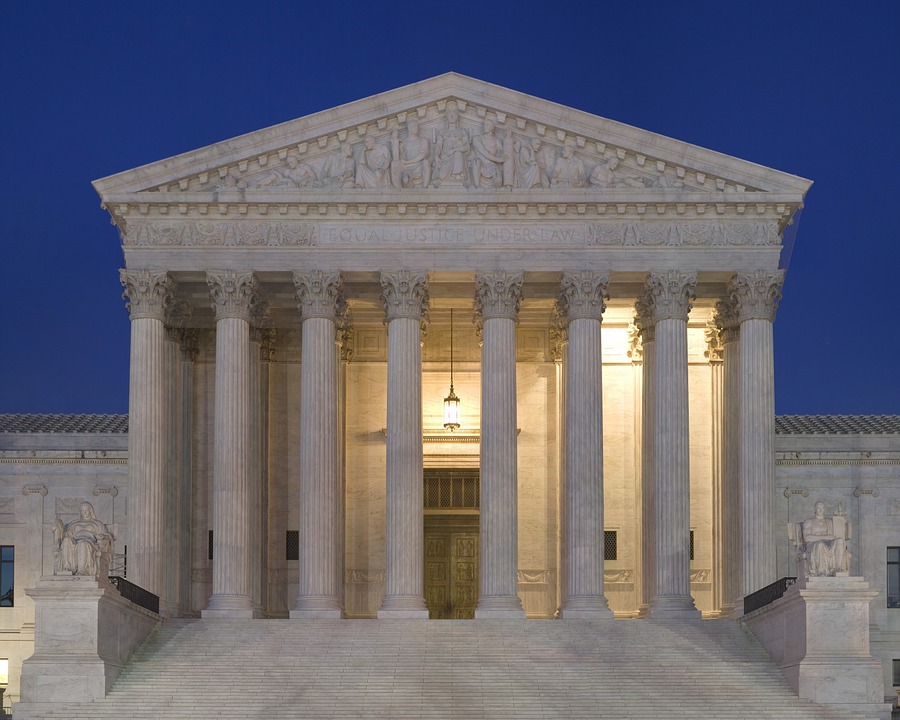
By: Sarah A. Teitelman, Esq., Jules D. Zalon, Esq. and Christopher J. McHattie, Esq.
On March 4, 2019, the United States Supreme Court resolved a long-standing circuit COURT split and held that a copyright owner must first obtain a copyright Certificate of Registration from the United States Copyright Office before instituting a copyright infringement action, subject to certain exceptions. See Fourth Estate Public Benefit Corp. v. Wall-Street.com, LLC, 586 U.S. 1 (2019) Justice Ruth Bader Ginsburg authored the unanimous opinion in Fourth Estate Pub, which affirmed the Eleventh Circuit’s “registration approach” and has now made clear that an issued Certificate of Registration is a prerequisite to file a copyright infringement action.
By way of background, Fourth Estate Public Benefit Corporation (“Fourth Estate”), a news organization, licensed its articles to Wall-Street.com, LLC (“Wall-Street”), a news website pursuant to a written license (the “License”). The License authorized Wall-Street.com to post Fourth Estate articles, but required Wall-Street to remove them upon termination of the License. Wall-Street subsequently terminated the License but contrary to the License failed to remove the articles Wall-Street from the Wall-Street website; Fourth Estate promptly filed suit and simultaneously filed applications to register the articles with the Copyright Office.[1] The District Court dismissed the complaint for failure to have a Certificate of Registration and the Eleventh Circuit affirmed, holding that under 17 U.S.C. § 411(a) (2018), Fourth Estate did not have standing to sue for copyright infringement because the Copyright Office had not “registered” the articles in response to the then pending copyright applications, and, therefore, Fourth Estate had to wait to bring an infringement lawsuit until after the Copyright Office rendered a decision.
While copyright arises automatically upon “fixation” of a work in a tangible medium of expression . . . without any additional action by the author, Section 411(a) of the Copyright Act provides that, “no [copyright infringement action] shall be instituted until . . . registration of the copyright claim has been made . . .” Prior to Fourth Estate Pub, the Circuit Courts have been split over the meaning of the phrase “registration . . . has been made.” Contrary to the Eleventh Circuit, the Ninth Circuit took the “application approach” arguing that “registration…has been made” when a copyright owner submits a proper application for registration with the Copyright Office, providing of course that a Certificate of Registration ultimately issues. Accordingly, under the “application approach” a copyright owner may sue for copyright infringement as soon as the owner files the copyright application and pays the application fee. Therefore, the issue before the Supreme Court in Fourth Estate Pub was when has “registration . . . been made” under Section 411(a).
Justice Ginsburg’s opinion adopts the “registration approach” in holding “that registration occurs, and a copyright claimant may commence an infringement suit, when the Copyright Office registers a copyright.” Fourth Estate Pub., 586 U.S. at 1. In reaching this conclusion, Justice Ginsburg relied on the following facts. First, Justice Ginsburg explained that Section 411(a) contains an exception that allows owners to file copyright infringement suits after the refusal of a registration, which would be “superfluous” if a copyright owner could “sue for copyright infringement immediately after applying for registration.” Id. at 5. Second, the third sentence of Section 411(a) allows the Register of Copyrights to become a party “with respect to the issue of registrability of a copyright claim” in infringement lawsuits. Justice Ginsburg stated that, again, this sentence would be unnecessary “if an infringement suit could be filed and resolved before the Register [of Copyright’s] acted on an application.” Id. at 6. Justice Ginsburg also looked to other provisions of the Copyright Act, specifically Sections 408(f) and 410, to support the holding that “registration,” as used in Section 411(a), means action by the Copyright Office, not merely filing an application and paying a fee.
Finally, Justice Ginsburg looked to the legislative history of the Copyright Act to support her holding that registration occurs upon the Copyright Office issuing a registration certificate. Justice Ginsburg noted that Congress “has maintained registration as prerequisite to suit, and rejected proposals that would have eliminated registration or tied it to the copyright claimant’s application instead of the Register’s action” in 1976, 1988, 1993, and 2005. Justice Ginsburg explained that this clear congressional mandate necessitated an adoption of the “registration approach.”
This opinion only underscores the importance of prompt filing of copyright applications with the Copyright Office. Perhaps the most important reason for prompt filing is that failure to file before an infringement forfeits (subject to limited exceptions) the right to obtain an award of statutory damages and – critically – a discretionary award of attorneys’ fees. Given the costs of copyright litigation, that alone can often determine whether to file suit in the first place. Registration also permits a copyright owner to establish a record with the U.S. Customs and Border Protection for protection against the importation of infringing copies.” See U.S. Copyright Office, Copyright Basics (2017), https://www.copyright.gov/circs/circ01.pdf.
While
registration is still not necessary for copyright owners to gain exclusive
rights in their works, it is now more important than ever to think through the
implications of not registering copyrightable work with the Copyright Office. We
look forward to assisting copyright owners to make these important decisions
and register their works so they can protect their rights in their works!
[1]Curiously, Fourth Estate did not avail itself of the Copyright Office’s expedited registration procedure, which enables registration in a matter of days when litigation is about to be instituted. For reasons not explained in the opinion, the Copyright Office refused registration, bringing this issue to the fore.

